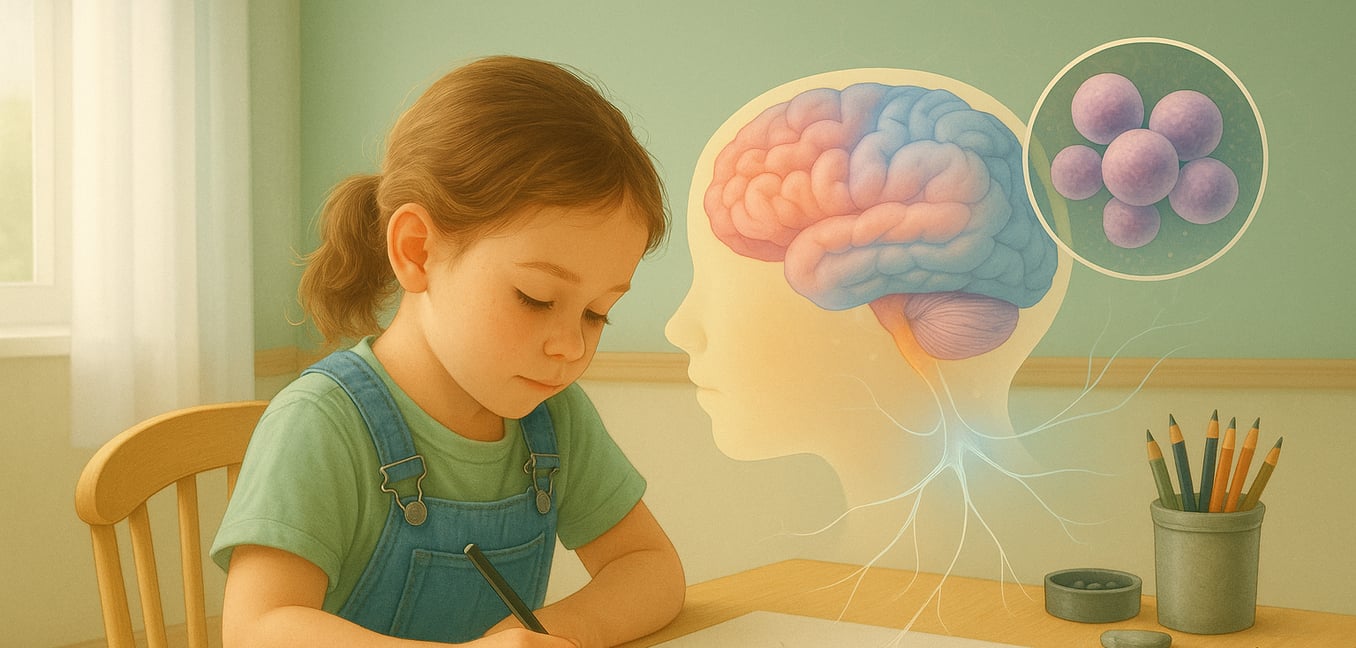How Neuroblastoma Impacts a Child's Psychological Well-being
Neuroblastoma is a cancer of immature nerve cells that primarily affects young children, with most diagnoses occurring before the age of five. Thanks to major treatment advances, more of these children are surviving into adolescence and adulthood. This medical success, however, has revealed a new frontier of challenges: understanding and managing the long-term psychological and developmental impact of surviving a life-threatening illness during the brain’s most critical growth period.
The Psychological and Behavioral Challenges for Survivors
While many children show incredible resilience, surviving neuroblastoma can leave them more vulnerable to a range of psychological and behavioral difficulties. Research comparing hundreds of survivors to their peers reveals a clear pattern of increased risk that can affect their emotional health, academic performance, and social lives.
Emotional and Attentional Difficulties
The experience of cancer is a profound stressor that can be considered a form of early life trauma. The memories of treatment, fear of relapse, and long periods of uncertainty can have lasting effects.
- Anxiety and Depression: Survivors experience higher rates of anxiety and depression. The constant health worries can lead to a state of hypervigilance and, in some cases, symptoms of post-traumatic stress.
- Attention Deficits: Difficulties with focus and concentration are significantly more common in survivors. This is often linked to the impact of treatment on the brain's developing control center, which manages planning, focus, and self-control.
- Oppositional Behavior: Challenges with executive functions can also manifest as headstrong or oppositional behaviors, as following rules and regulating impulses becomes more difficult.
Social and Educational Hurdles
The psychological impacts of neuroblastoma often extend into the classroom and social settings, creating significant hurdles as survivors grow.
- Social Interaction: The greatest disparity is seen in social functioning, with many survivors struggling with peer conflict or social withdrawal. The long periods of isolation required for treatment can disrupt the development of social skills during crucial formative years, making it difficult to reconnect with peers.
- Need for Educational Support: The combination of attention deficits, anxiety, and behavioral challenges means survivors are more likely to require special education services. This support is often essential to help them succeed academically in a standard classroom environment.
- Transition to Adulthood: The cumulative effect of these challenges can impact a survivor's future. Studies show that those with psychological impairment are less likely to attend college, highlighting how early medical struggles can influence long-term life paths.
Understanding the Causes: How Cancer and Treatment Impact the Brain
The psychological challenges faced by survivors are not just emotional reactions; they are often rooted in physical changes to the developing brain. The combination of the disease itself and the intensive therapies used to fight it can create a "double hit" on the central nervous system, altering its developmental course.
The Direct Effects of Treatment
The powerful treatments required to cure neuroblastoma can be toxic to the developing brain, with different therapies posing unique risks.
- Cranial Radiation Therapy (CRT): Radiation is highly effective at killing cancer cells, but it can also damage healthy, developing brain tissue. It is strongly linked to later neurodevelopmental problems because it can disrupt the growth of new brain cells and damage the white matter tracts—the brain's information highways—leading to long-term issues with memory, attention, and processing speed.
- Intensive Chemotherapy: Powerful chemotherapy drugs are designed to attack rapidly dividing cells, a category that unfortunately includes healthy cells in a child's brain. These drugs can cross into the brain and cause inflammation or disrupt cellular processes, contributing to a condition known as "chemo brain." This can cause lasting difficulties with planning, memory, and organization, even in children who did not receive radiation.
- Tumor Location and Surgery: When a neuroblastoma originates in or near the central nervous system, the tumor itself poses a direct threat. While life-saving, surgery to remove it can be incredibly delicate and may cause unavoidable changes to nearby brain tissue, creating a unique set of risks.
Visible Changes in Brain Structure and Function
Advanced neuroimaging gives researchers a direct look at how a survivor's brain has been affected. These scans reveal physical marks that provide a biological explanation for many of the cognitive and behavioral challenges they face.
- Disrupted Brain "Highways": Many survivors show reduced integrity in the brain's white matter. You can picture this as having persistent traffic jams on the brain's communication superhighways. This damage slows down the speed at which information travels, making tasks that require quick thinking and sustained attention more difficult and tiring.
- Changes in Brain "Processing Centers": The volume and thickness of gray matter—the areas responsible for thinking, memory, and emotional control—can also be affected. Scans have identified changes in key regions like the hippocampus (vital for memory) and the prefrontal cortex (the brain's executive control center), which can explain difficulties with memory, organization, and emotional regulation.
- Altered Brain Activity: Even when at rest, a survivor's brain may be organized less efficiently. When asked to perform a mental task, their brains often have to work much harder and recruit more neural resources than their peers' to achieve the same result. This extra effort is a likely cause of the significant mental fatigue many survivors report.
The Link Between Chronic Physical and Mental Health
Interestingly, the risk for psychological impairment is not always tied directly to a specific drug. Instead, it is often linked to the chronic health conditions that develop as a late effect of treatment. Survivors who suffer from long-term issues like pulmonary disease, endocrine disorders, or peripheral nerve damage are at a significantly higher risk for psychological problems. This finding underscores the deep connection between physical and mental health, showing that managing a survivor's ongoing physical well-being is a critical part of supporting their psychological recovery.










